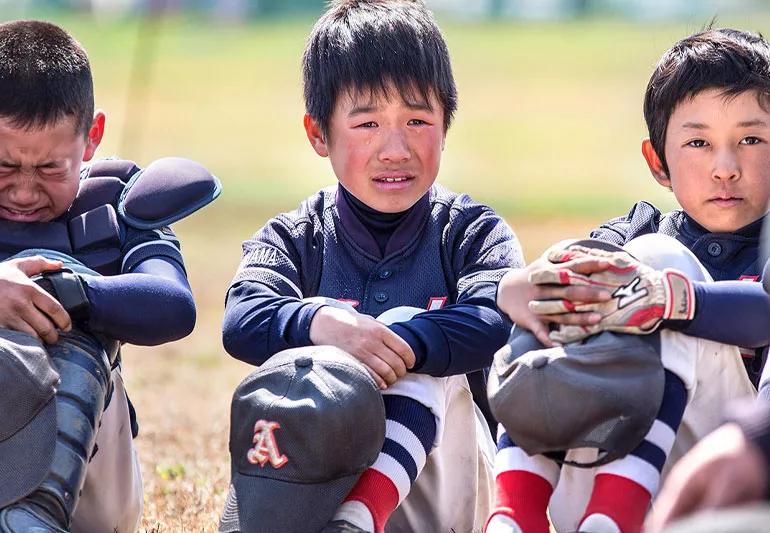Grace and humility are important traits to develop at a young age

Image content: This image is available to view online.
View image online (https://assets.clevelandclinic.org/transform/9b0e701f-44f7-490b-90e4-21f14cc2cc28/childSadLoser-653829080-770x533-1_jpg)
sad children Baseball lost game
Losing is bound to happen — it’s just the way the world works. If your child plays competitive sports or loves family game nights, they are bound to lose sometimes. And, as a parent, it’s your job to help your child learn how to handle these disappointments calmly. It isn’t always the easiest task to take on, but it’s crucial for your child’s behavior development.
Advertisement
Cleveland Clinic is a non-profit academic medical center. Advertising on our site helps support our mission. We do not endorse non-Cleveland Clinic products or services. Policy
Child psychiatrist Joseph Austerman, DO, says teaching this skill is vital to helping children manage difficulties later in life.
“It’s your responsibility as a parent to help children navigate when things aren’t going their way,” he says. “The better you teach them this as children, the better they’ll be able to do it as adults.”
Dr. Austerman offers these tips to help your child learn to handle disappointments and losses in sports and games.
Advertisement
It might also be helpful to examine the behavior of your child’s coaches and teammates/friends when they experience loss, as well as the parents of those teammates and friends.
Children are easily influenced by their coaches, friends and friends’ families. If you notice temperamental behavior coming from both children and adults who are spending time around your child, consider having meaningful (not accusatory) conversations with them about how your child is affected. If the toxicity continues, it might be best to remove your child from the team or have them spend less time with those friends.
“No matter what,” Dr. Austerman says, “Maintain patience with your child. Learning how to cope with competitive losses gracefully can take time.”
“This is a process as children grow,” he says. “Continue to praise your children for good efforts and good behaviors. It will help them learn how to handle and work through frustrating situations.”
Advertisement

Delivered every Tuesday!
Sign up for our Health Essentials emails for expert guidance on nutrition, fitness, sleep, skin care and more
It's a letter about the news!
Learn more about our editorial process.
Advertisement
Sailing between parenting styles in specific situations is key
From learning to change diapers to considering your parenting style, our advice for new dads
Being mindful of who you are as a parent not only benefits your child, but also you
The answer comes down to your child’s maturity
How to know if this parenting style is going too far
Plus, signs your baby will walk soon
Teamwork truly does make a difference
If you’ve been letting a lot of things slide, learn how to reintroduce the rules
Type 2 diabetes isn’t inevitable with these dietary changes
Applying a hot or cold compress can help with pain
Pump up your iron intake with foods like tuna, tofu and turkey